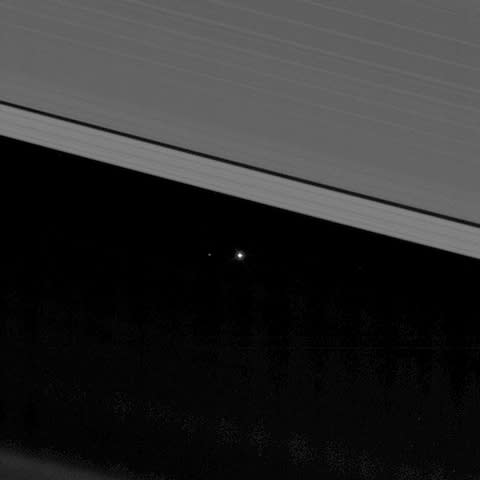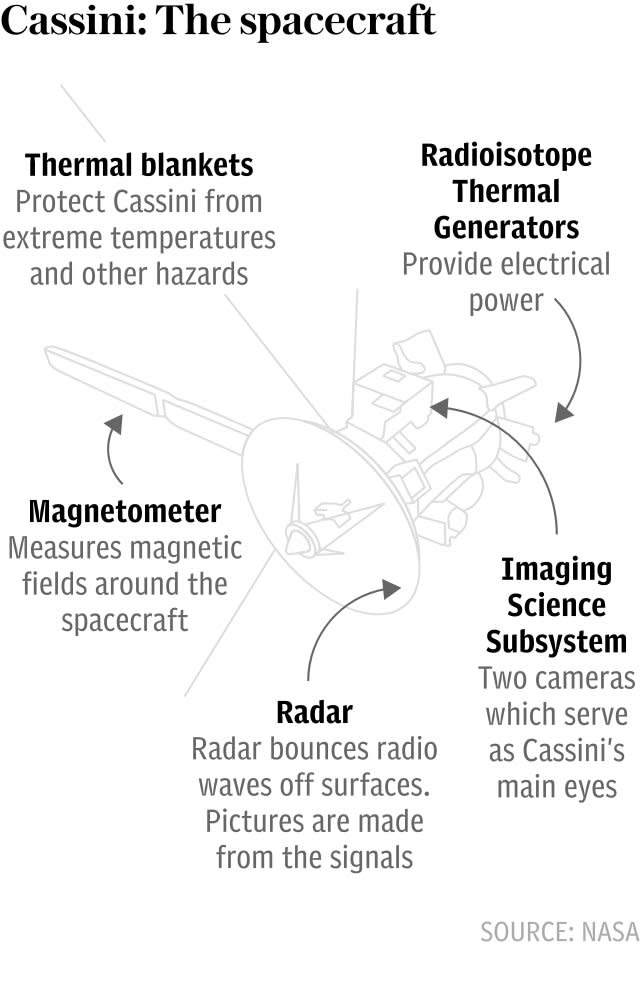NASA is going to crash a £3 billion spacecraft into Saturn tomorrow

NASA is about to crash a £3 billion spacecraft which has been in space for 20 years – hurling it into a death-dive towards Saturn tomorrow.
On Monday, the Cassini probe flew past Saturn’s huge moon Titan one last time for a gravity assist – a final kiss goodbye, as NASA calls it – nudging the spacecraft into a death dive.
During its final plunge early Friday morning, Cassini will keep sampling Saturn’s atmosphere and beaming back data, until the spacecraft loses control and its antenna no longer points toward Earth.
MOST POPULAR STORIES FROM YAHOO UK:
Man left unable to get erection after being scratched by a cat in his home
What happens when you go face-to-face with Britain’s biggest fatberg?
Why is the iPhone X £250 more in Britain than it is in America?
Mother gives heartbreaking account of how girl, five, was raped by her brother, 12
British people are coping with Storm Aileen the only way we know how
Descending at a scorching 76,000 mph Cassini will melt and then vapourise.
It will be all over in a minute.
NASA took the decision to end the mission as Cassini’s fuel tank is almost empty – and the space agency want to avoid accidentally crashing into the moons Enceladus and Titan, which might host life.
The only spacecraft ever to orbit Saturn, Cassini spent the past five months exploring the uncharted territory between the gaseous planet and its dazzling rings.

It’s darted 22 times between that gap, sending back ever more amazing photos.
‘The mission has been insanely, wildly, beautifully successful, and it’s coming to an end,’ said NASA program scientist Curt Niebur. ‘I find great comfort in the fact that Cassini will continue teaching us up to the very last second.’
Telescopes on Earth will watch for Cassini’s burnout nearly a billion miles away. But any flashes will be hard to see given the time – close to high noon at Saturn – and Cassini’s minuscule size against the solar system’s second largest planet.

The plutonium on board will be the last thing to go.
The dangerous substance was encased in super-dense iridium as a safeguard for Cassini’s 1997 launch and has been used for electric power to run its instruments.
Project officials said once the iridium melts, the plutonium will be dispersed into the atmosphere. Nothing – not even traces of plutonium – should escape Saturn’s deep gravity well.
The whole point of this one last exercise – dubbed the Grand Finale – is to prevent the spacecraft from crashing into the moons of Enceladus or Titan.
NASA wants future robotic explorers to find pristine worlds where life might possibly exist, free of Earthly contamination.

 Yahoo News
Yahoo News 

